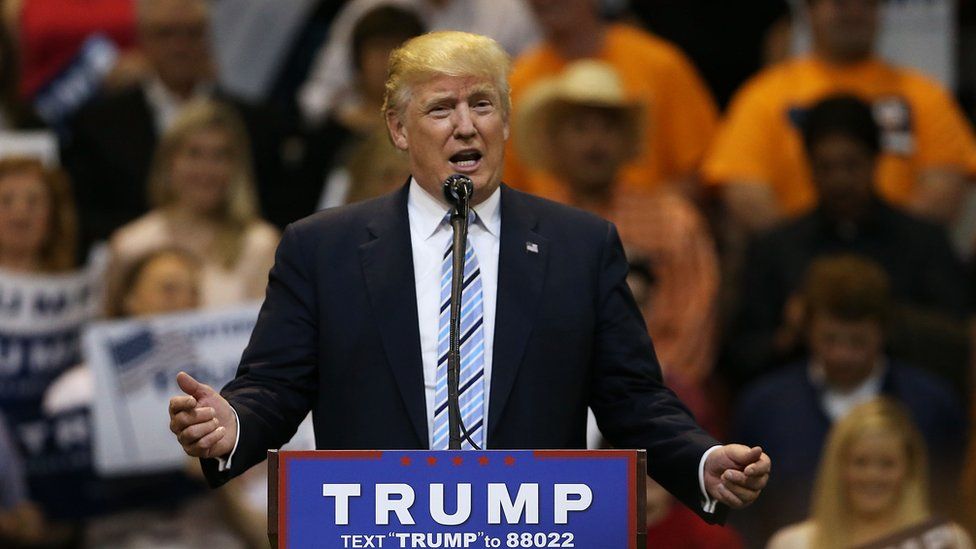Donald Trump would 'cancel' Paris climate deal
- Published

Republican presidential nominee Donald Trump has said he would "cancel" the Paris climate deal in his first major speech on energy policy.
More than 195 countries pledged to reduce carbon emissions in a landmark agreement last year.
The billionaire businessman has said before there is no evidence that humans are responsible for climate change.
He called for more drilling, fewer regulations and the approval of the Keystone XL oil pipeline from Canada.
"Any regulation that's outdated, unnecessary, bad for workers or contrary to the national interest will be scrapped and scrapped completely," Mr Trump said.
"We're going to do all this while taking proper regard for rational environmental concerns."
Analysis: Matt McGrath, BBC News Environment Correspondent
Donald Trump's desire to see the end of US participation in the Paris climate agreement is increasing the pressure for a rapid ratification around the world.
But that's not easy as the process can often get bogged down in national parliaments. The Obama administration and others believe they are well on the way to securing that level of support which they feel would then make a US withdrawal, in the face of global condemnation, much less likely. But they could be dead wrong about that.
Mr Trump though doesn't have to go to such lengths to end US involvement. He could choose to ignore or reverse or delay Obama's initiatives on climate including the Clean Power Plan. The real strength of the Paris agreement is that it comes from the bottom up, countries decide for themselves what their emissions cutting commitments will be. But this could also be a huge weakness.
If a President Trump doesn't put emissions cutting regulations into place, no one could force him to. Would China or India and others continue to cut their carbon while the US did not? Unlikely.
Before this speech, he had said he would "renegotiate" the global agreement involving nearly all countries, but this time he went further and said the US would pull out.
The climate change deal is "bad for US business" and said the pact allows "foreign bureaucrats control over how much energy we use".
Under the deal, countries set emission limits themselves, not an outside panel.
Mr Trump has called climate change "a hoax" devised by the Chinese government.
It is uncertain whether Mr Trump, if elected, could actually make any changes to the deal.
The accord will have legal force once it is ratified by 55 countries that contribute 55% of global emissions.
If the deal is ratified by January, a new American president would have to wait four years to withdraw from the deal.
COP 21: Why does Paris climate change conference matter?
While the US is the second-largest greenhouse gas polluter, it has been instrumental in helping other countries such as India reduce emissions.
Mr Trump said on Friday that the US would stop funding these efforts.
Environmental advocates called Mr Trump's proposals "frightening".
"Trump's energy policies would accelerate climate change, protect corporate polluters who profit from poisoning our air and water, and block the transition to clean energy that is necessary to strengthen our economy and protect our climate and health," Tom Steyer, a billionaire environmental activist, told Reuters.
On Thursday, he officially became the presidential nominee for his party, surpassing the 1,238 delegates required.